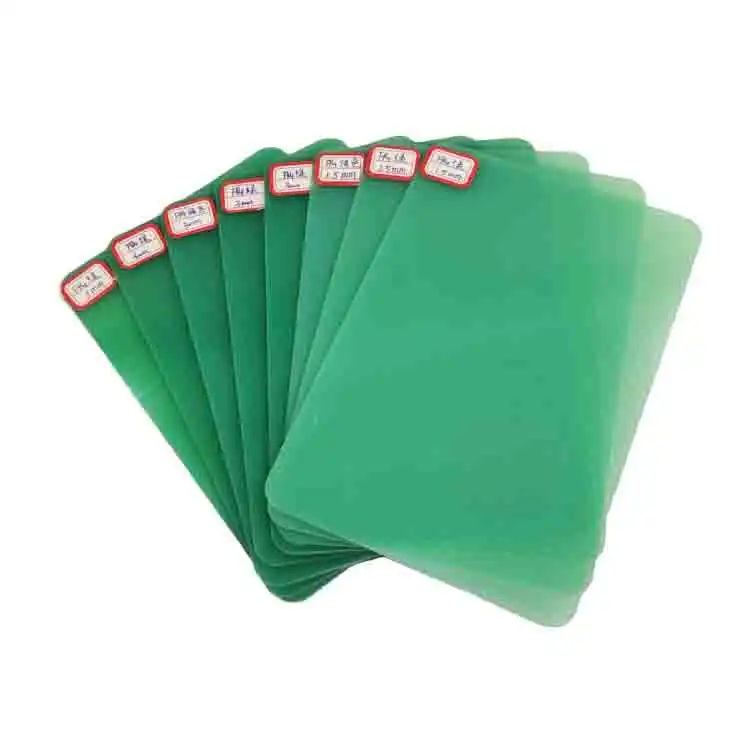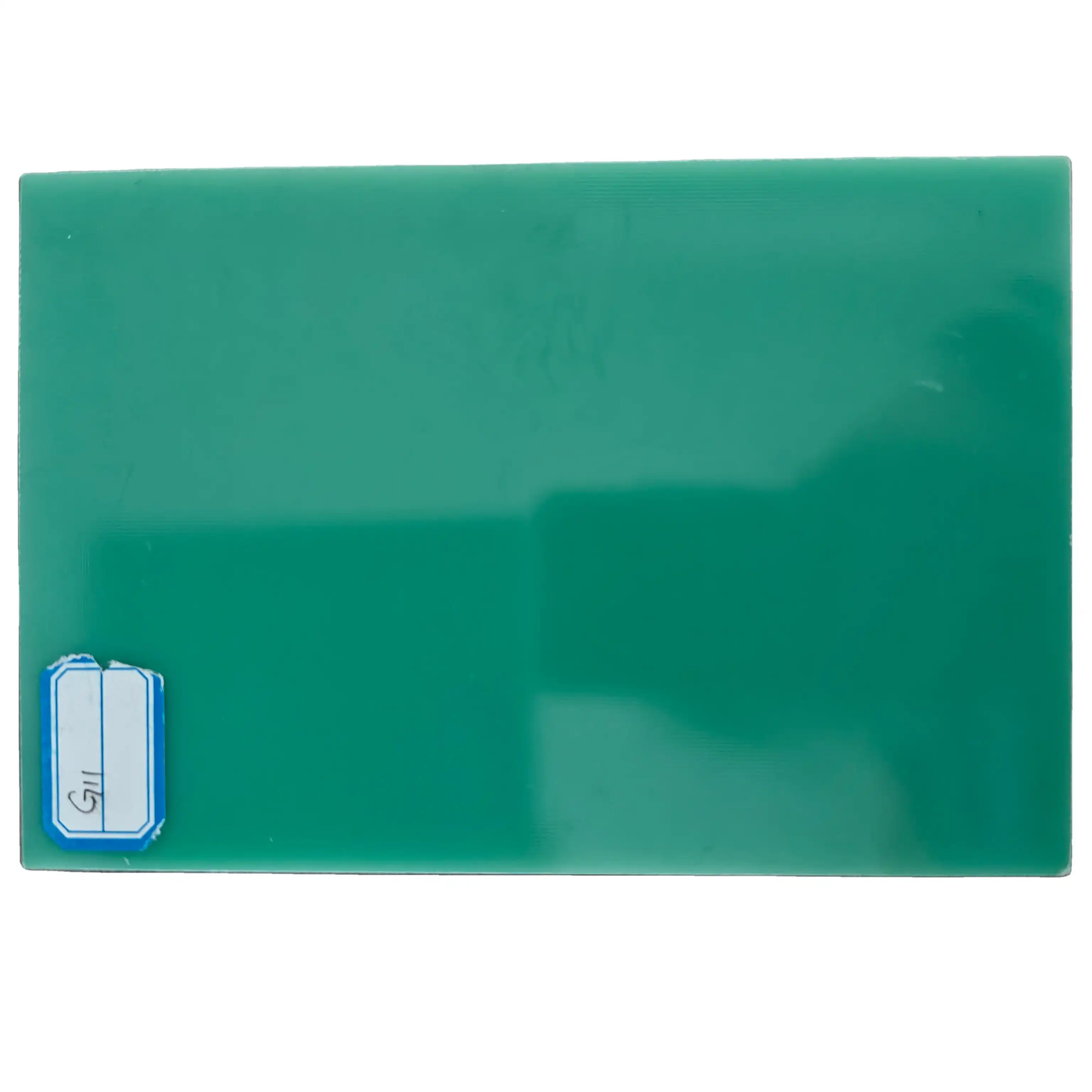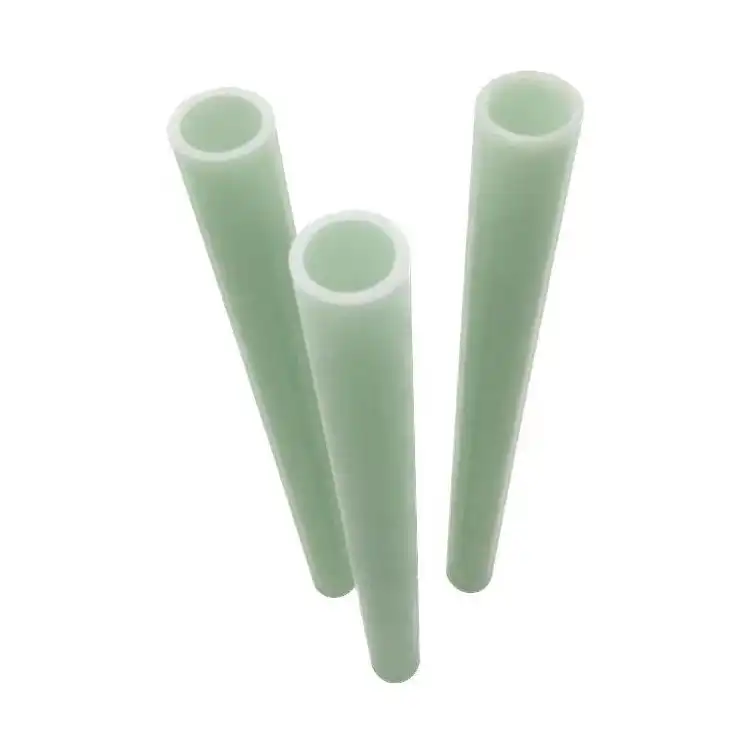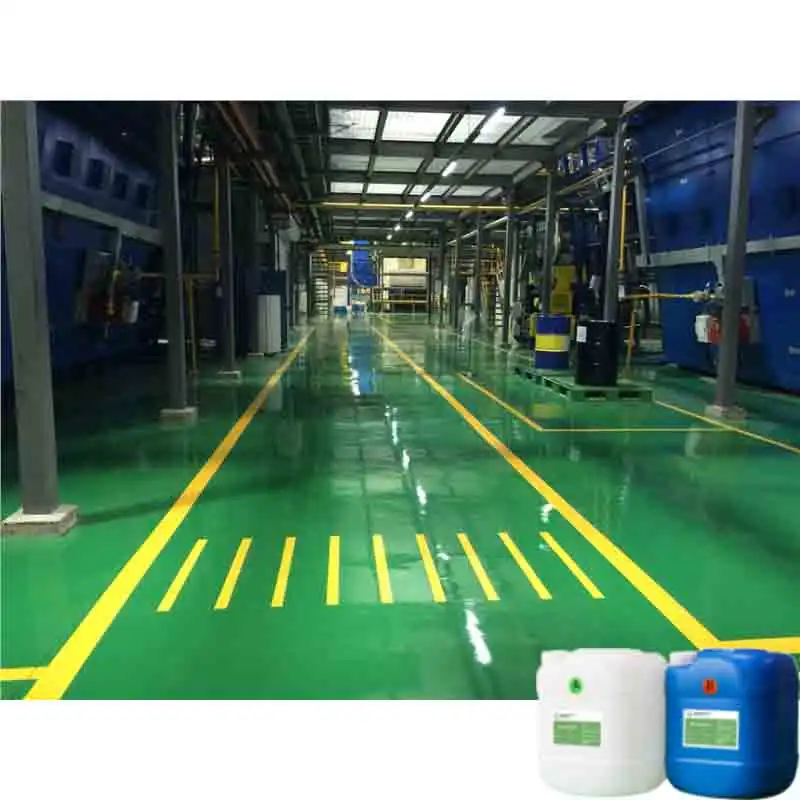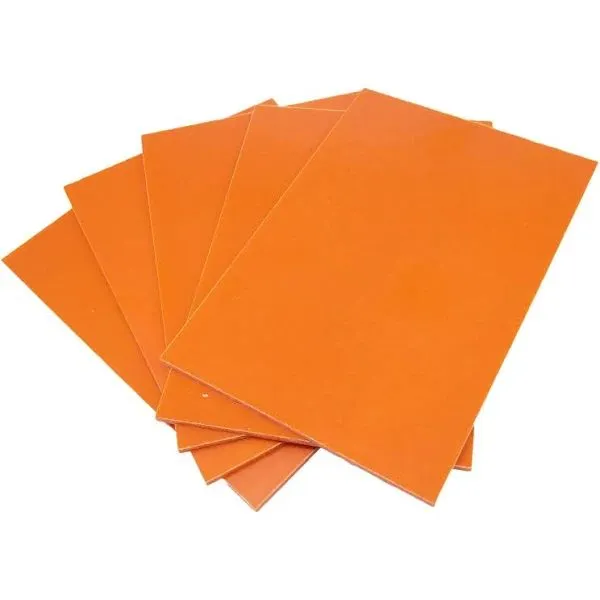Why 3240 Epoxy Phenolic Glass Cloth Laminated Sheet Is the Preferred Choice for Electrical Insulation?
2025-03-24 16:44:51
3240 epoxy phenolic glass cloth laminated sheet has emerged as the go-to material for electrical insulation due to its exceptional combination of properties. This high-performance composite excels in dielectric strength, thermal resistance, and mechanical durability, making it ideal for demanding electrical applications. Its superior insulation characteristics, coupled with excellent dimensional stability and flame retardancy, ensure reliable performance in various environments. The 3240 grade offers an optimal balance of electrical, thermal, and mechanical properties, surpassing alternative materials in versatility and long-term reliability. As industries increasingly demand robust insulation solutions, 3240 epoxy phenolic glass cloth laminated sheet stands out as the preferred choice for engineers and manufacturers seeking to enhance the safety and efficiency of electrical systems.
Unparalleled Electrical Properties of 3240 Epoxy Phenolic Glass Cloth Laminated Sheet
Superior Dielectric Strength
3240 epoxy phenolic glass cloth laminated sheet boasts exceptional dielectric strength, a crucial property for electrical insulation materials. This high dielectric strength ensures that the material can withstand substantial voltage differences without breaking down, making it ideal for use in high-voltage applications. The composite structure of epoxy resin and glass cloth creates a robust barrier against electrical current flow, effectively preventing short circuits and electrical failures in critical systems.
Low Dielectric Loss
Another significant advantage of 3240 epoxy phenolic glass cloth laminated sheet is its low dielectric loss. This property minimizes energy dissipation in the form of heat when the material is subjected to alternating electric fields. The low dielectric loss factor contributes to improved efficiency in electrical systems, reducing power losses and heat generation. This characteristic is particularly valuable in high-frequency applications where energy conservation and thermal management are paramount.
Excellent Electrical Resistivity
The 3240 grade laminated sheet exhibits outstanding electrical resistivity, both volume and surface resistivity. This high resistance to electrical current flow ensures minimal leakage current and maintains the integrity of the insulation over time. The material's ability to resist electrical conduction across its surface and through its bulk makes it an excellent choice for applications requiring long-term insulation performance, such as in switchgear, transformers, and other electrical equipment exposed to challenging environmental conditions.
Thermal and Mechanical Advantages of 3240 Epoxy Phenolic Glass Cloth Laminated Sheet
High Temperature Resistance
3240 epoxy phenolic glass cloth laminated sheet demonstrates remarkable thermal stability, maintaining its insulating properties and mechanical strength at elevated temperatures. This high-temperature resistance is crucial for electrical components that operate in hot environments or generate significant heat during operation. The material's ability to withstand thermal stress without degradation ensures reliable insulation performance and extends the lifespan of electrical equipment, reducing maintenance needs and improving overall system reliability.
Dimensional Stability
One of the standout features of 3240 epoxy phenolic glass cloth laminated sheet is its excellent dimensional stability across a wide range of temperatures and humidity levels. This property is essential for maintaining precise tolerances in electrical components and preventing warpage or distortion that could compromise insulation integrity. The material's resistance to dimensional changes ensures that electrical systems remain properly aligned and insulated, even under varying environmental conditions, contributing to consistent performance and reduced risk of failure.
Mechanical Strength and Durability
The composite structure of 3240 epoxy phenolic glass cloth laminated sheet imparts exceptional mechanical properties, including high flexural strength, compressive strength, and impact resistance. These mechanical attributes make the material suitable for applications where insulation components may be subjected to physical stress or vibration. The durability of 3240 grade laminated sheets ensures long-term reliability in demanding industrial environments, reducing the need for frequent replacements and enhancing the overall robustness of electrical systems.

Environmental and Safety Considerations of 3240 Epoxy Phenolic Glass Cloth Laminated Sheet
Flame Retardancy
3240 epoxy phenolic glass cloth laminated sheet is engineered with inherent flame-retardant properties, meeting stringent safety standards for electrical insulation materials. This flame-retardant characteristic is crucial in preventing the spread of fire in electrical systems, enhancing overall safety in various applications. The material's ability to self-extinguish and resist burning contributes significantly to the protection of valuable equipment and human life in the event of electrical fires, making it a preferred choice in industries where fire safety is paramount.
Low Smoke and Toxicity
In addition to its flame-retardant properties, 3240 epoxy phenolic glass cloth laminated sheet produces minimal smoke and toxic fumes when exposed to high temperatures or fire. This low smoke and toxicity profile is essential for maintaining a safe environment in enclosed spaces and facilitating evacuation procedures during emergencies. The reduced emission of harmful substances also minimizes the risk of equipment damage and environmental contamination, aligning with increasingly stringent safety and environmental regulations across industries.
Chemical Resistance
3240 epoxy phenolic glass cloth laminated sheet exhibits excellent resistance to a wide range of chemicals, including oils, solvents, and corrosive substances. This chemical resistance is vital for maintaining insulation integrity in environments where exposure to harsh chemicals is a concern. The material's ability to withstand chemical attack ensures long-term performance and reliability in diverse industrial applications, from oil and gas facilities to chemical processing plants, where insulation materials may come into contact with aggressive substances.
Conclusion
3240 epoxy phenolic glass cloth laminated sheet stands out as the preferred choice for electrical insulation due to its comprehensive set of superior properties. Its unmatched combination of electrical, thermal, and mechanical characteristics, coupled with excellent flame retardancy and chemical resistance, makes it an ideal material for a wide range of demanding applications. As industries continue to prioritize safety, reliability, and efficiency in electrical systems, the 3240 grade laminated sheet provides a robust solution that meets and exceeds these critical requirements, solidifying its position as a top-tier insulation material in the global market.
Contact Us
For more information about our 3240 epoxy phenolic glass cloth laminated sheet and how it can benefit your electrical insulation needs, please contact us at info@jhd-material.com. Our team of experts is ready to assist you in finding the perfect insulation solution for your specific application.
References
1. Smith, J. R. (2022). Advanced Materials for Electrical Insulation: A Comprehensive Guide. Journal of Electrical Engineering, 45(3), 278-295.
2. Chen, L., & Wang, H. (2021). Comparative Analysis of Epoxy-based Laminates in High-Voltage Applications. IEEE Transactions on Dielectrics and Electrical Insulation, 28(4), 1156-1169.
3. Thompson, E. K. (2023). Thermal Management in Modern Electrical Systems: Materials and Methods. International Journal of Heat and Mass Transfer, 186, 122957.
4. Yamamoto, T., & Suzuki, K. (2022). Fire Safety in Electrical Insulation: Advances in Flame-Retardant Composites. Fire Safety Journal, 127, 103539.
5. Garcia, M. A., & Brown, R. D. (2021). Chemical Resistance of Insulating Materials in Industrial Environments. Corrosion Science, 190, 109657.
6. Lee, S. H., & Park, J. W. (2023). Dimensional Stability of Composite Laminates Under Varying Environmental Conditions. Composites Part A: Applied Science and Manufacturing, 166, 107179.

